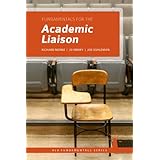What I’m reading Right Now: Toxic Charity
by Robert D. Lupton
Why I’m reading it:
Lupton’s follow-up book Charity Detox came
to my attention as I was putting up a New Books display. When I went later to
look it up in the catalog, I got the name wrong and found this book, which came
before it. I decided to start with this one.
What I think of it:
Lupton’s style is the familiar “let me tell you a story, then explain
my point” sort of narrative, which is easy and fast to read. However, it is also a painful read at times. The idea that charitable efforts may actually be
hurting people rather than helping is unpleasant. This is partly wounded ego “I’m helping people. See what a good person I
am” and partly recognition of “wow, I’ve
done that very thing,” whether it be thoughtless money-in-the-bucket or a
semi/sub conscious feeling of superiority. I don’t like to consciously consider
that I might be fostering dependency in someone, and taking away their dignity
and agency to improve their life. But if I am, my duty to honest almsgiving
means I should critically consider what I do and how & why I do it.
Will I finish it?
Yes, I will. Chapters
seven through ten are Lupton’s suggestions on how to be a charitable giver in
ways that really help – or in the words of the Hippocratic Oath which he quotes
several times, “First do no harm”. Lupton melds this idea into the Oath of
Compassionate Service:
Never do for the
poor what they have (or could have) the capacity to do for themselves.
Limit one-way
giving to emergencies.
Strive to empower
the poor through employment, lending, and investing using grants sparingly to
reinforce achievements.
Subordinate self-interests
to the needs of those being served.
Listen closely to
those you seek to help, especially to what is not being said – unspoken feelings
may contain essential clues to effective service.
Above all, do no
harm.
Would I recommend it?
Absolutely. I know lots of people who are actively supporting
charitable causes. Neither I nor Lupton want to suppress the desire to help
others – it is a Christian as well as an American virtue. If we’re going to
help, we should actually, well, help.
This book points the way.
Gimme a quote:
Dambisa Moyo, in her best-selling expose Dead Aid, writes about assistance to her native Africa: “The
reality is aid has helped make the poor poorer and growth slower. Aid has been,
and continues to be, an unmitigated political, economic and humanitarian
disaster most parts of the developing world.”


